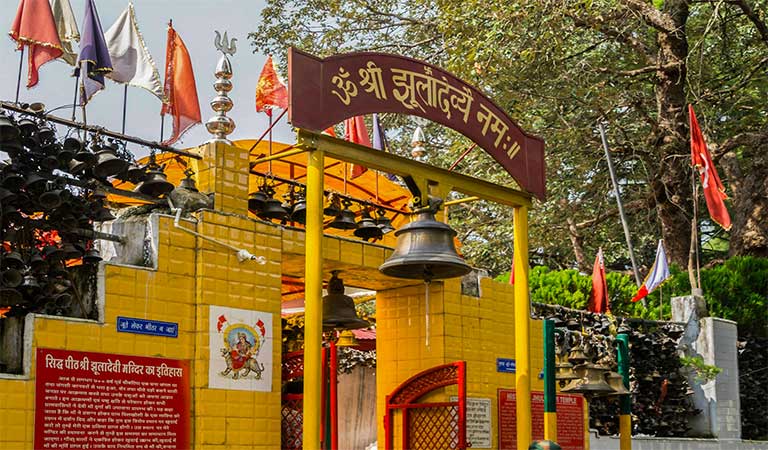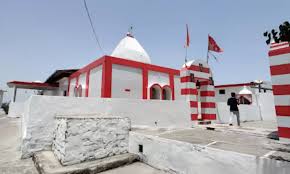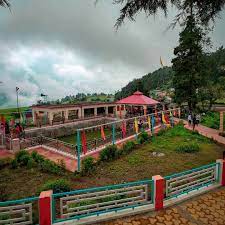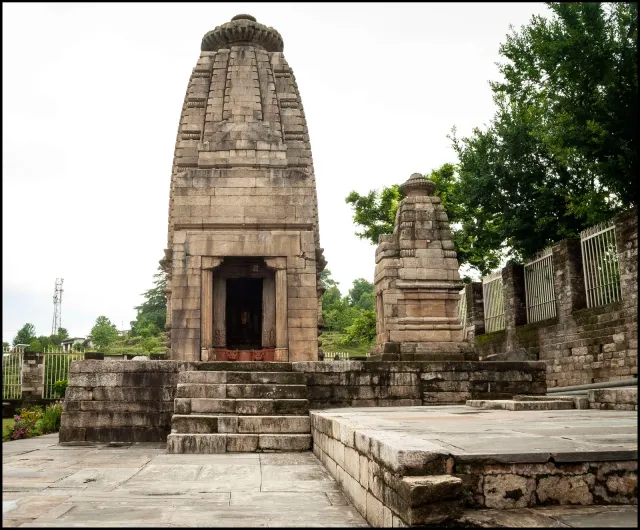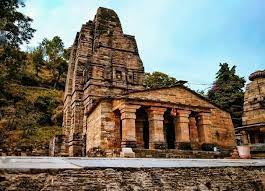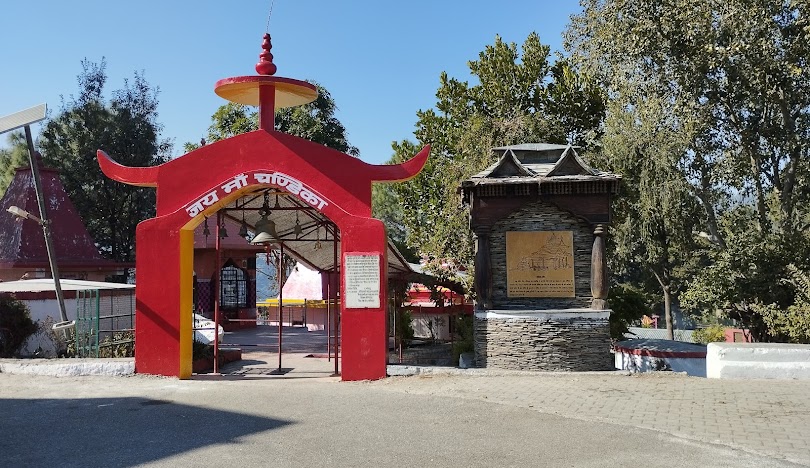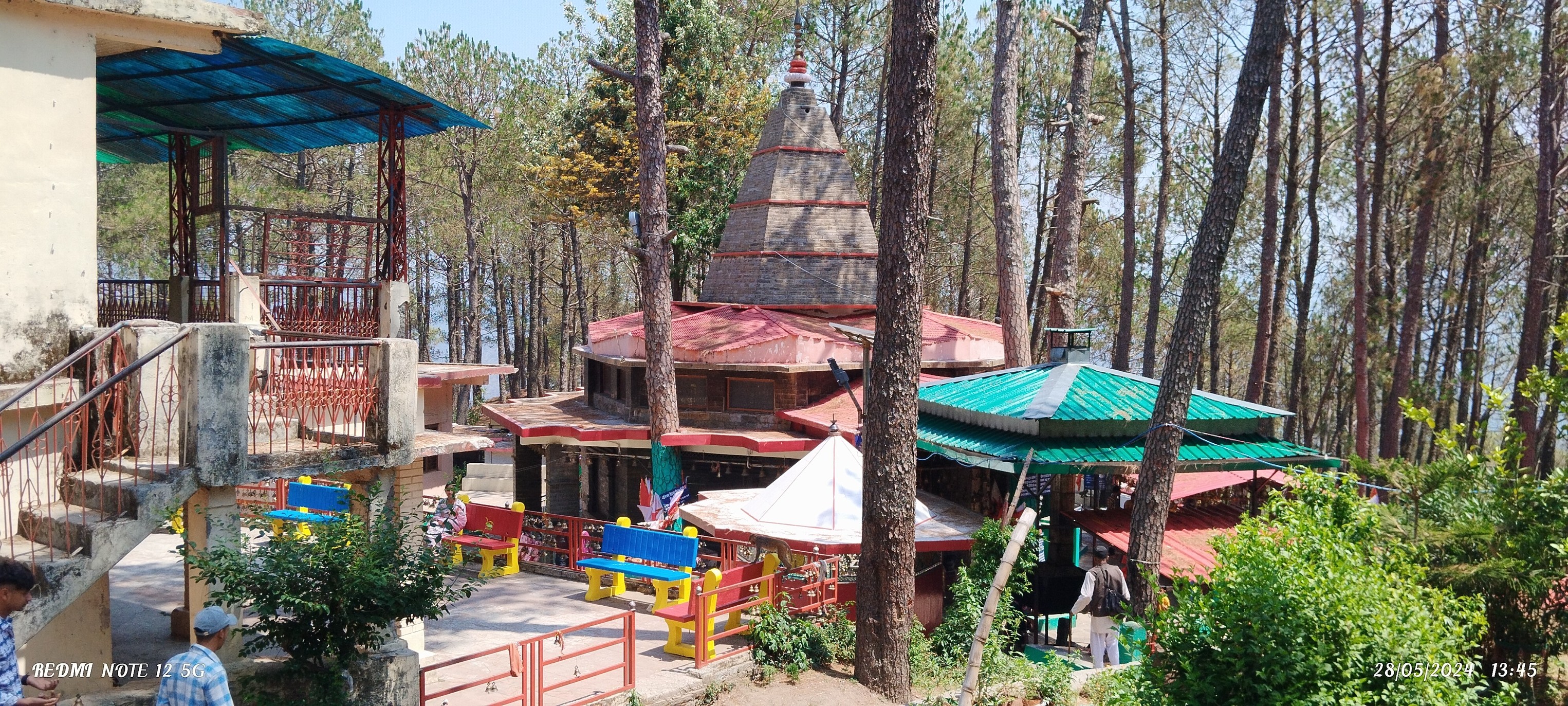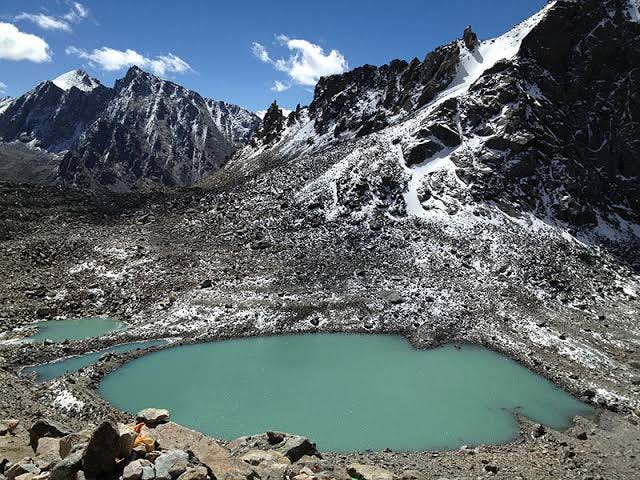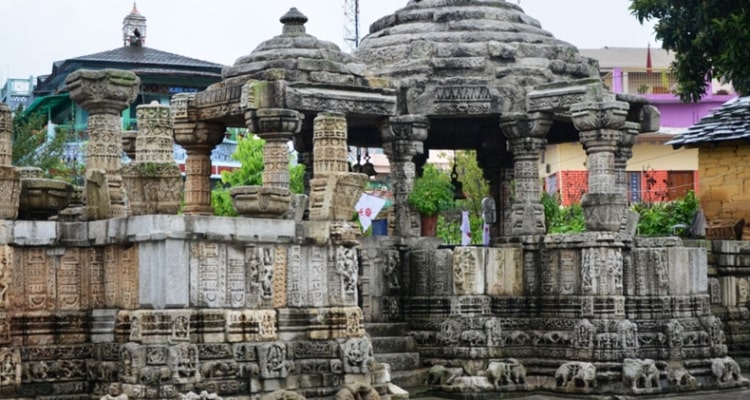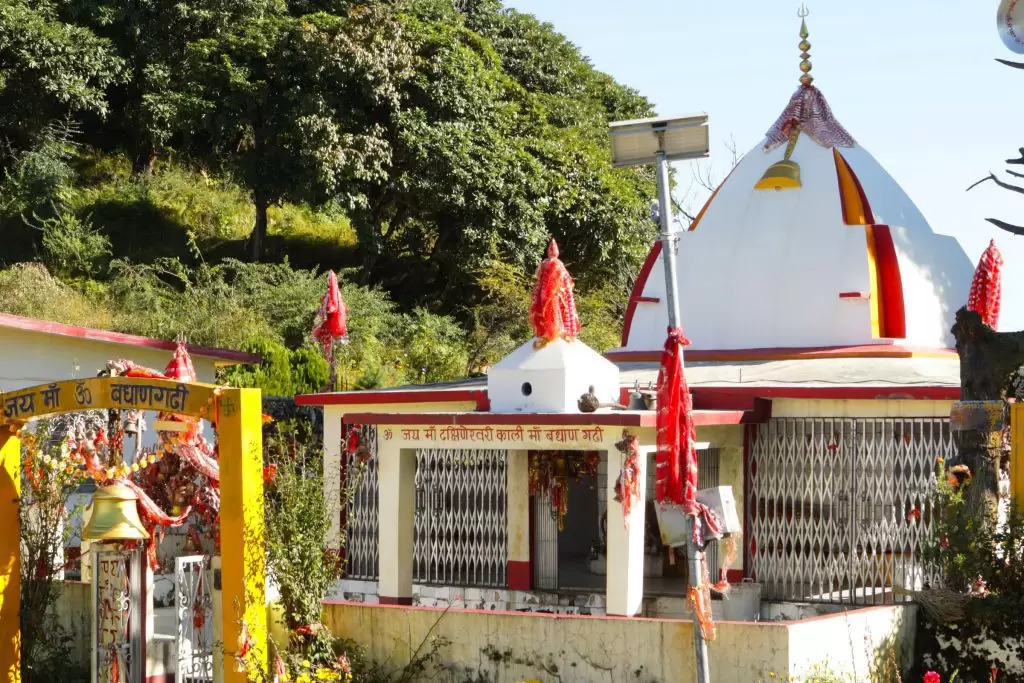The pine timber maintains the air heavy with resin, the roads curl like unfastened ribbons, and a long way off, the snow peaks shine while the clouds permit them to. Somewhere along this quiet ridge is Jhula Devi Temple (झूला देवी मंदिर). At first sight, it is straightforward, nearly normal. But step inside and you feel it, the way old devotion seeps into stone and silence.
The Temple of the Swing
The name itself tells the story. Jhula (झूला) means swing. In the courtyard, a swing hangs close to the goddess. People come to touch it, to give it a soft push, as though their prayers could ride with its gentle motion. There are no grand golden arches, no loud claim to power. Just the small act of moving a swing and trusting the देवी (Devi) will hear.
Locals say this is how she lets you know she is present. A light nudge, a little faith, and she responds.
A Story Rooted in Gratitude
This shrine was not built by kings. Villagers came together and raised it after troubled times, when peace returned to the land. Their way of saying thank you was not in words but in stone. That origin still lingers in the walls.
Inside, the मूर्ति (idol) of the goddess sits quietly, framed with wood and bells. The bells themselves tell a story. Some are new and shiny, offered by visitors who came last season. Others are old, rusted, heavy with years. When the wind moves them, the sound feels layered, like voices from different times joining together.
The Rhythm of Worship
The temple is not big, yet its rhythm feels steady. Morning आरती (aarti) begins with flowers and lamps. Women in woolen shawls convey marigolds, guys bow their heads, and kids run around until a clergyman brings them near with a smile.
During नवरात्रि (Navratri), the area glows. Diyas milled in the courtyard, songs floated into the wooded region, and the swing swayed more than usual. It isn't always an approximation or spectacle. It is about keeping the thread of faith unbroken.
A View That Holds Its Own
Stand inside the courtyard and appear past the bells. Ranikhet stretches under, forests sliding down into mist. On a clean morning, in case you are fortunate, you spot नंदा देवी (Nanda Devi) in the distance, her height rising above the entirety.
The soundscape right here is part of the devotion, too. The wind runs via pine branches, a cowbell clinks some distance off, and someplace a canine barks. Mix that with the ring of the temple bells, and the complete valley looks like it is humming along.
Small Things That Stay With You
- A visit leaves you with details more than facts.
- The chain of the swing, cold and rough against your hand.
- The smell of incense drifts and mixes with pine needles.
- A woman whispering “जय माता दी (Jai Mata Di)” as she lights a diya.
- The sudden stop of a bell, the silence sharp afterwards.
- A child tugging at the swing with both hands, eyes wide in awe.
- These are not things you forget quickly.
Why Jhula Devi Matters
- Uttarakhand is filled with Devi temples, each with its own story. What makes this one stand apart is its humility.
- Built by villagers as an offering of gratitude.
- Centered not on grandeur but on a simple swing.
- Surrounded by forest, with mountains watching from afar.
- Alive with everyday faith rather than only legend
That is why people keep returning. Not to be dazzled, but to feel near to something steady and kind.
Visiting Jhula Devi
If you plan to come, keep these in mind:
- Location: Just a few kilometers from Ranikhet, easy to reach by road.
- Best time: March to June or September to November. Winter is cold but quiet. Navratri brings the temple to life.
- What to do: Sit in the courtyard. Let the bells ring once. Touch the swing. Look at the mountains before you leave.
- The temple doesn’t take much of your time, but it leaves more with you than you expect.
A Closing Thought
Jhula Devi Temple is not about size or spectacle. It is about closeness. A swing that moves softly. A goddess who listens quietly. A valley that holds both in its embrace.
Sometimes, when people leave, they whisper a last word to the goddess: “मां सुन लो (Maa sun lo).” And perhaps that is the heart of it. A place where even the smallest gestures, a touch of the swing, the lighting of one diya, are enough to reach the divine.

